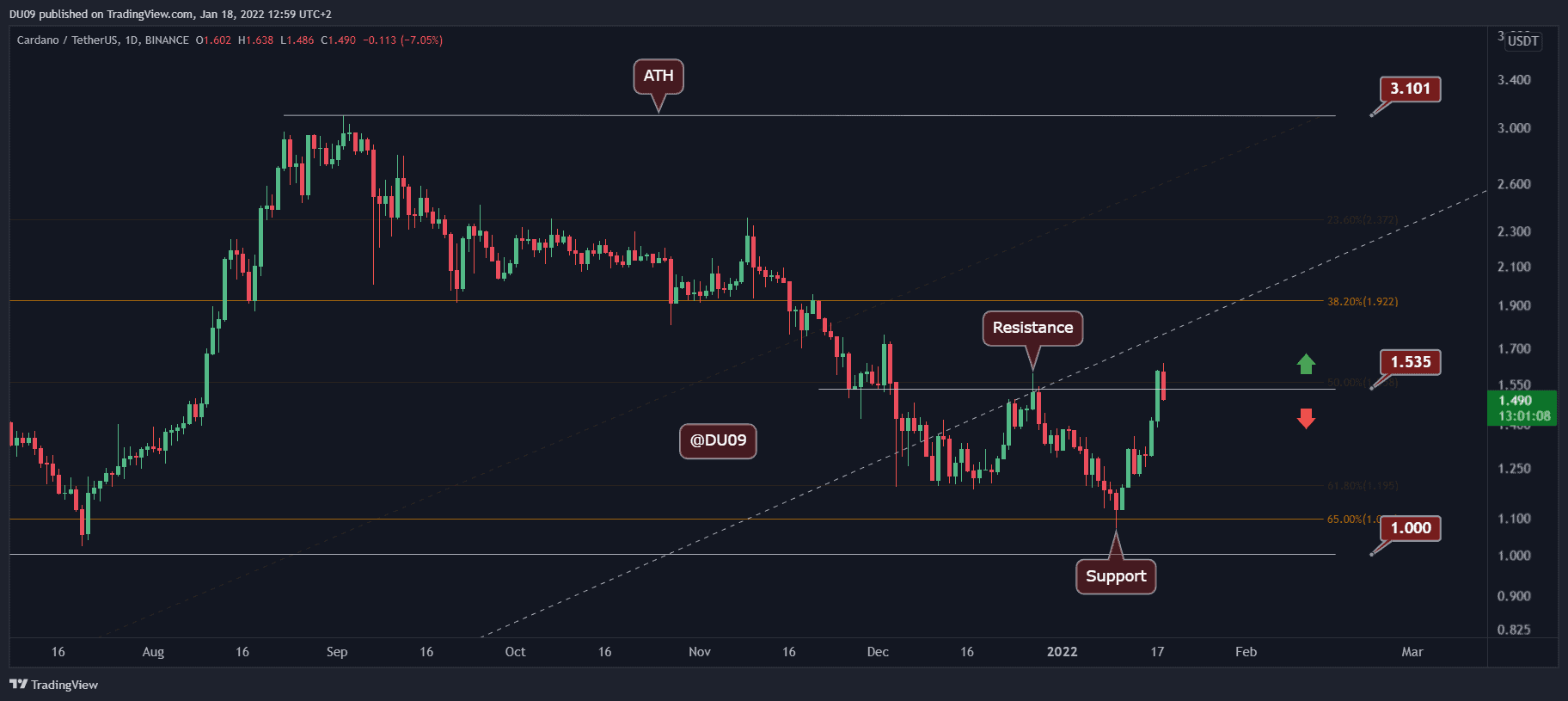The First US State to Adopt Bitcoin Will Make Huge Gains (Op-Ed)
The United States could lose its preeminent financial and political influence in the world as other sovereign powers make haste to legalize and adopt Bitcoin as their reserve currency.
The threat to America is not merely a matter of leaving an (increasingly plausibly) enormous amount of money on the table. Bitcoin is the largest ever deployment of strong public-key cryptography in history to secure a financial system that is growing parabolically.
The cryptocurrency has innumerable use cases for fundamentally reordering and securing the world’s energy infrastructure. Joining the Bitcoin hashpower and accumulation race is a matter of modern cyber warcraft. Strong cryptography has always in practice been a weapon of warfare and is legally regarded by governments as armament.
Cryptocurrency is an Arms Race to Secure Peace
This is an arms race, but one that has the potential to function as a pipeline for the “animal spirits” of war from conventional kinetic warfare that ends human lives to cyber warfare conducted on the digital layer of our global society, with real and substantial means of cold deterrence as a hoped-for effect in international affairs.
Indeed, those who understand it have good reasons to believe Bitcoin is the best deterrent to a shooting war— which has historically been part and parcel of global financial competition and inextricably intertwined with the politics of the US petrol dollar— since the atomic bomb.
In fact, while holders of bitcoin can do anything they want with it, including buying conventional arms and financing a war, the Bitcoin financial system itself cannot be used to finance war the way central bank fiat currency has been used by governments throughout recorded history.
The question is, which US state will lead the union to adapt to the inevitable disruption of Bitcoin’s ascendancy on the world stage?
The Enormous Opportunity Cost of Waiting to Adopt Bitcoin
Over the last two decades, Microsoft rested on its laurels and just watched Google build the software for mobile and capture an enormous amount of the profits from it. Bill Gates says losing to Android was his greatest mistake ever.
Standing by and watching El Salvador, Mexico, and other nations do the same with Bitcoin could be a mistake with far many more zeroes on it for the United States and the interests of its citizens. But more and more US policymakers are getting savvy about the importance of Bitcoin.
The first state to take the initiative and make a major push for rapid Bitcoin adoption, like El Salvador’s Nayib Bukele is doing, will reap enormous financial benefits and make its residents richer very suddenly.
US corporations that have made that bet have profited handsomely in a short amount of time:
“If I had picked gold instead when I bought bitcoin, we would probably have about $250 million in gold. And our shareholders would have missed out on $4 or $5 billion.” -MicroStrategy CEO Michael Saylor (at the Bloomberg Intelligence event at Bitcoin 2022 Conference)
What state will be the one to go first?
Which One Will Be First?
It’s unlikely those like New York and other mid-Atlantic states will, because they are so invested in the federal reserve financial system. California is a mixed bag of openness to tech innovation and establishmentarian interests. The residents and businesses there are more likely to adopt than the government.
Florida could be it, with an eye to overtake its large state peers in financial preeminence. Miami’s mayor would certainly have it so. Other, smaller southern state like Alabama, Mississippi, Kentucky, or Tennessee would have much farther to run from where they sit economically today, and so perhaps a greater incentive to join the Bitcoin race with gusto.
Their historical distrust and distaste for the centralization of political power in the federal government, on the basis of regionalism and a doctrine of state sovereignty as old as the union itself, would make them likely candidates for official Bitcoin adoption as well.
Bluer states with an independent streak and penchant for social innovation, such as New Hampshire, Colorado, Nevada, and Oregon, are also places where a drive for policy measures to ease and encourage the adoption of Bitcoin would make sense.
Nevada would particularly find many use cases for cryptocurrency beneficial for its unique economy. Colorado’s pro-crypto governor (and former US congressman), Jared Polis, has already successfully led his state to take measures to encourage the flow of bitcoin to the Centennial State.









